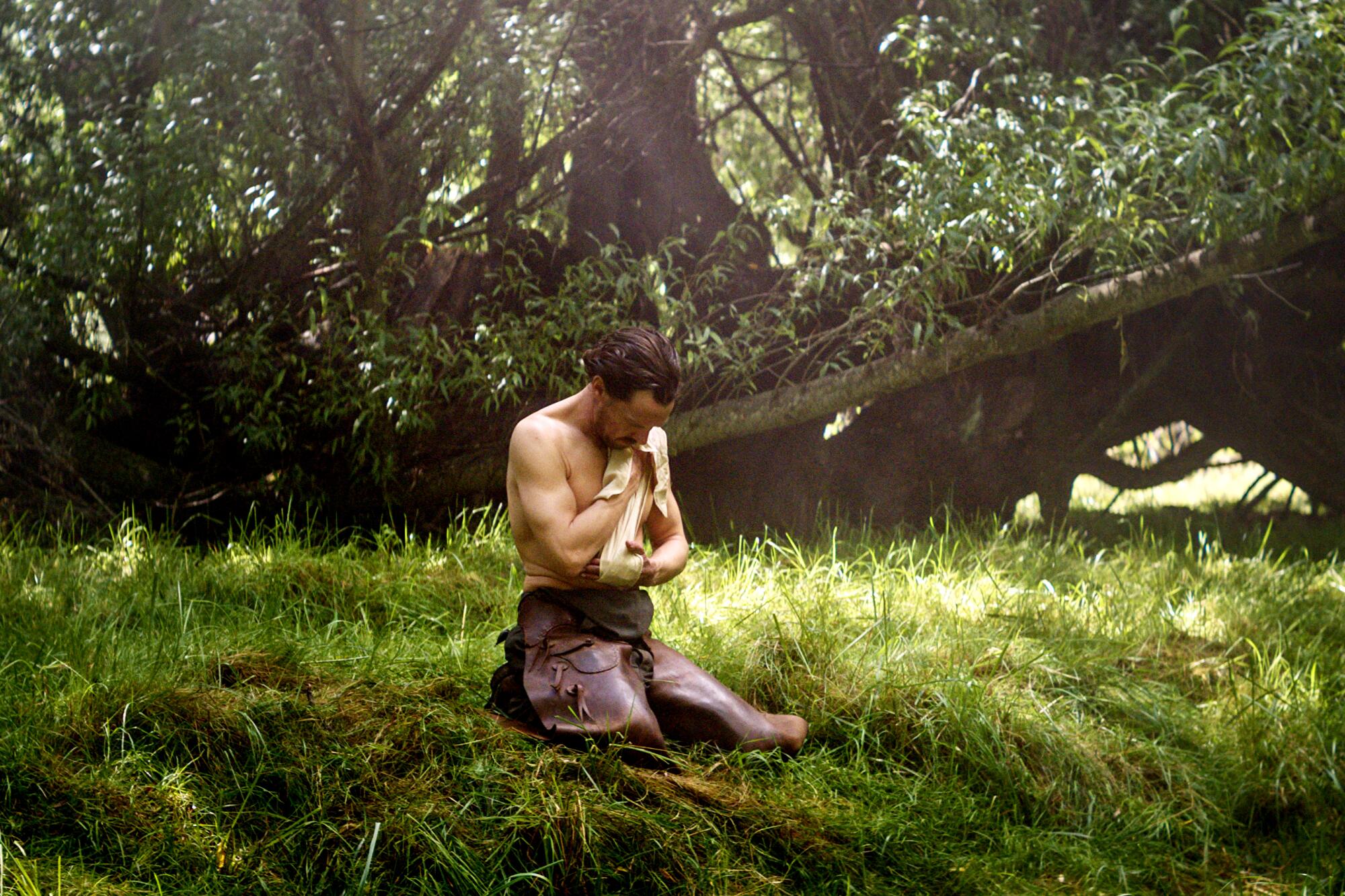
Thousands of hours go into shaping performances that go on to earn Academy Award nominations — but ultimately, it can boil down to one critical moment in a film that makes it or breaks it for actors. These scenes of great emotion or transition are the nexus of great directing, great writing and — of course — great acting. And when they land well, those scenes can be the very thing that brings home the Oscar. The Envelope spoke to directors and producers about what might be this “key scene” for the nominated lead actors and actresses of 2022:
Jessica Chastain, “The Eyes of Tammy Faye”
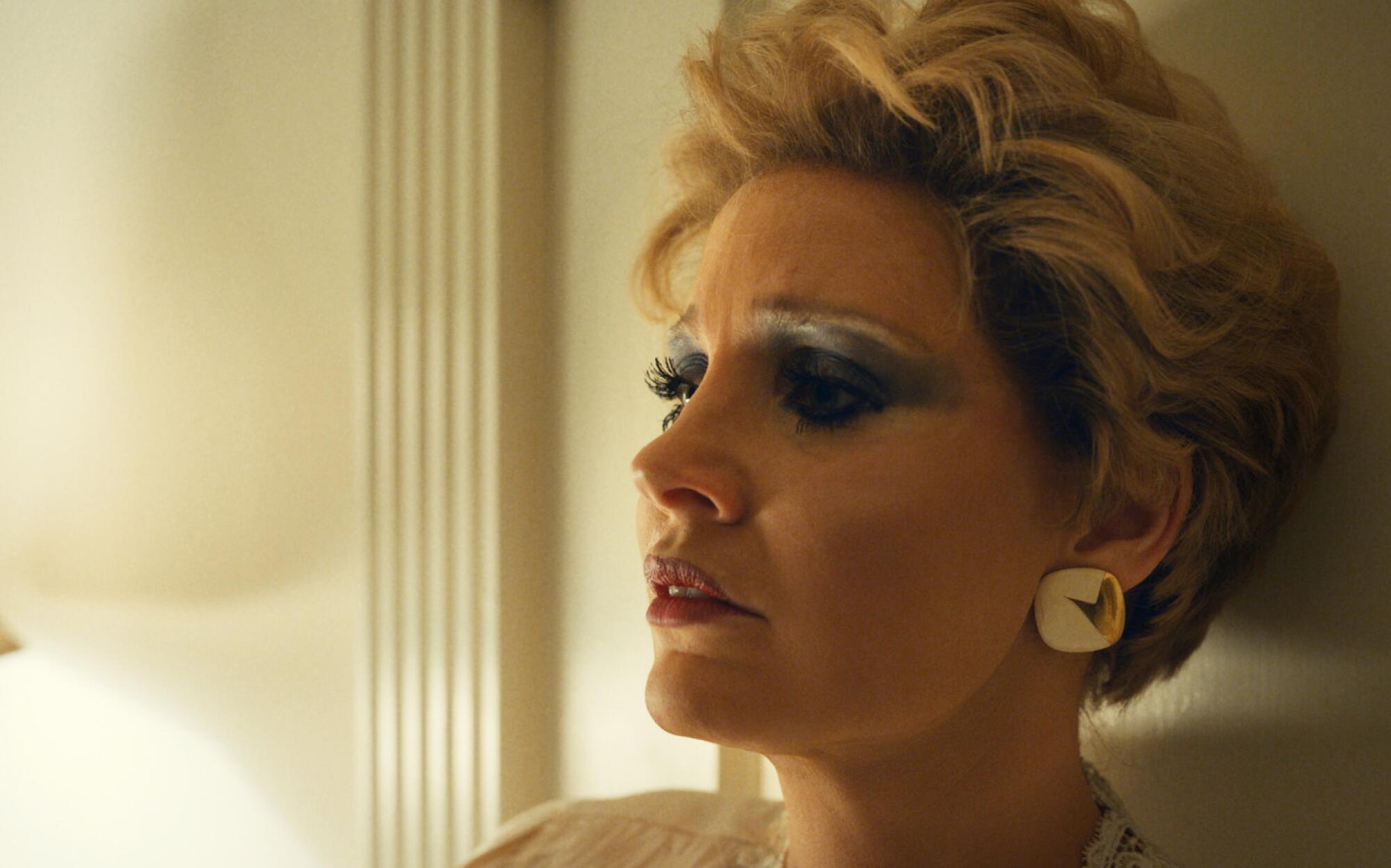
Set the scene: A mundane scene of a couple (Chastain’s Tammy Faye, Andrew Garfield’s Jim Bakker) brushing their teeth becomes a turning point when Jim accuses Tammy of an emotional affair and she asks if he’s going to divorce her.
What makes it key: “Her character is so broken in so many pieces,” says director Michael Showalter. “She’s committed to the relationship, even though it’s not a good marriage, and has subjugated the fact that she’s really the star. She wants this love; this is always the conversation around the character. After that scene, she starts putting on her armor: the makeup, the clothing, all of it.”
Olivia Colman, “The Lost Daughter”
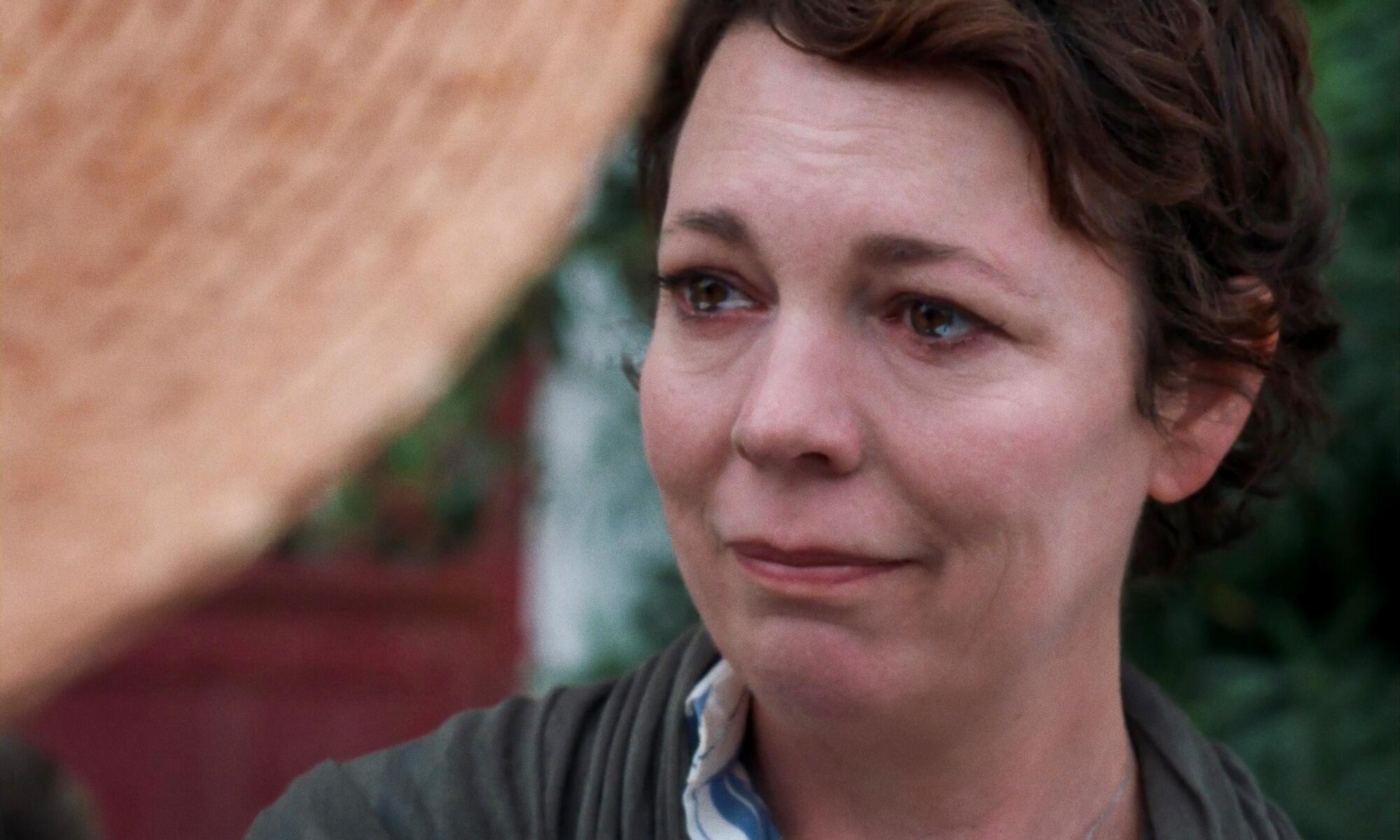
Set the scene: While walking through a marketplace, Leda (Colman) tells Nina (Dakota Johnson) her deepest secret: that she abandoned her daughters for a time when she was younger.
What makes it key: “She’s at a point in her life where she’s going to slowly die — metaphorically be less alive, less in touch with other people in the world — or she’s going to be brave enough to look at this difficult choice that caused her and her children unbelievable pain,” says director Maggie Gyllenhaal. “After looking at it, she might be able to find a little life. So, like a hero, she tells the truth about this difficult decision she made to this woman, who she recognizes is in a similar situation to her.”
Penélope Cruz, “Parallel Mothers”

Set the scene: While preparing dinner, Janis (Cruz) tells Ana (Milena Smit) that she’s going to have her great-grandfather exhumed from a mass grave. The two argue, with Janis explaining that they shouldn’t repeat the mistakes of the past — and that makes her realize she has to face up to a lie she’s been concealing.
What makes it key: “Janis is representing that half of Spain that wants justice to be done so there can be a tombstone placed at that grave, but it’s a political and social dialogue,” says director Pedro Almodóvar. “She’s living a lie, concealing an essential truth from Ana — after this scene Janis spills the beans to her about their two daughters — and there are many registers and tones in the character. It’s a lesson from Penélope, because it’s so deeply painful for her. She was crying all the time.”
Nicole Kidman, “Being the Ricardos”
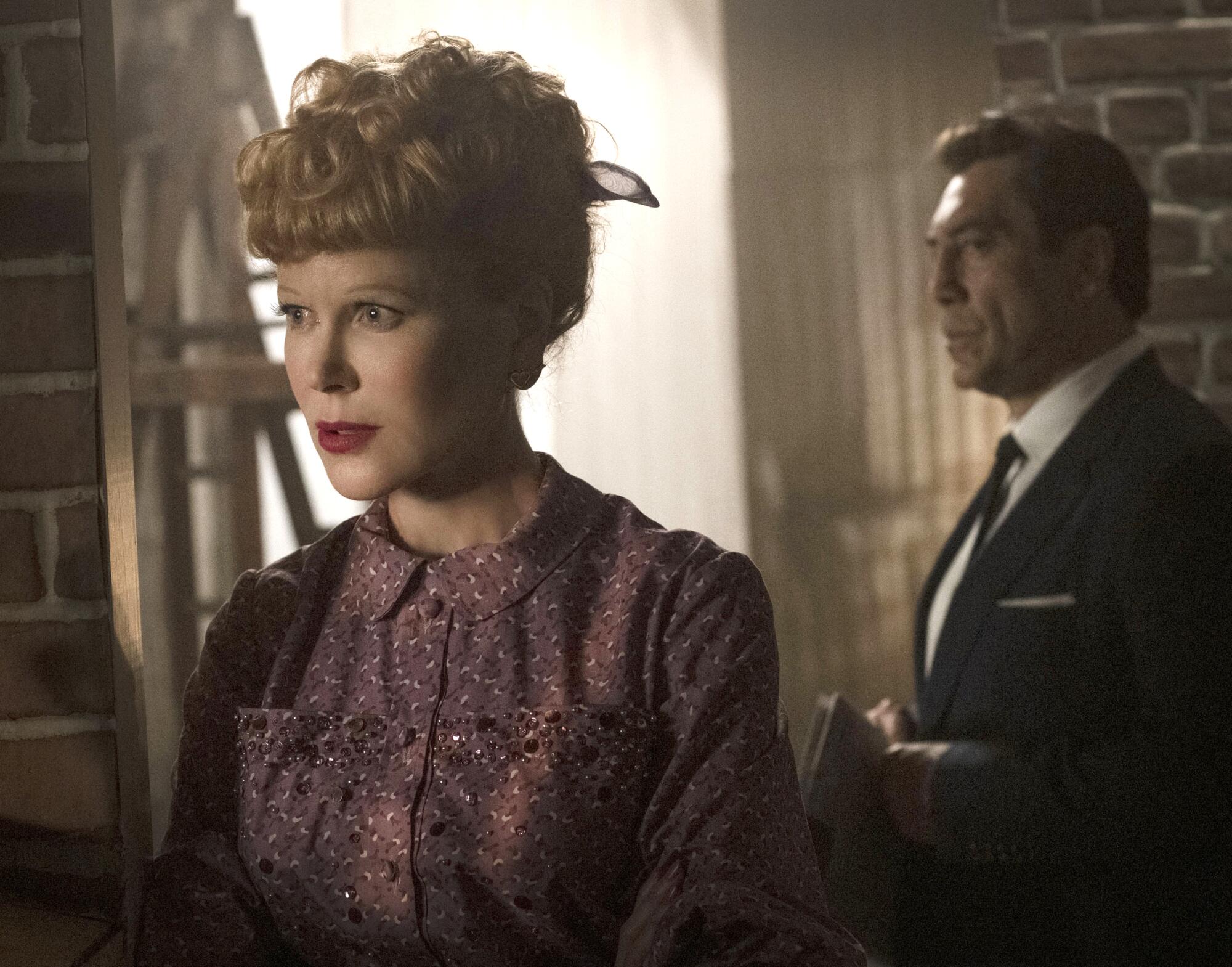
Set the scene: At 2 in the morning, Lucy (Kidman) calls her co-stars Bill (J.K. Simmons) and Vivian (Nina Arianda) to the set to rehearse a scene that’s not working in an “I Love Lucy” episode, but under the surface she’s simmering over discovering Desi’s (Javier Bardem) infidelity.
What makes it key: “For most people, 2 a.m. is a hard time to think straight, and she portrays out-of-control control beautifully,” says producer Todd Black. “She goes from staging the scene to sitting next to a camera and becoming completely vulnerable, unzipping her heart and letting it all out — all while not telling Bill and Vivian what’s going on. She’s wearing a mask and being ripped apart with emotion.”
Kristen Stewart, “Spencer”
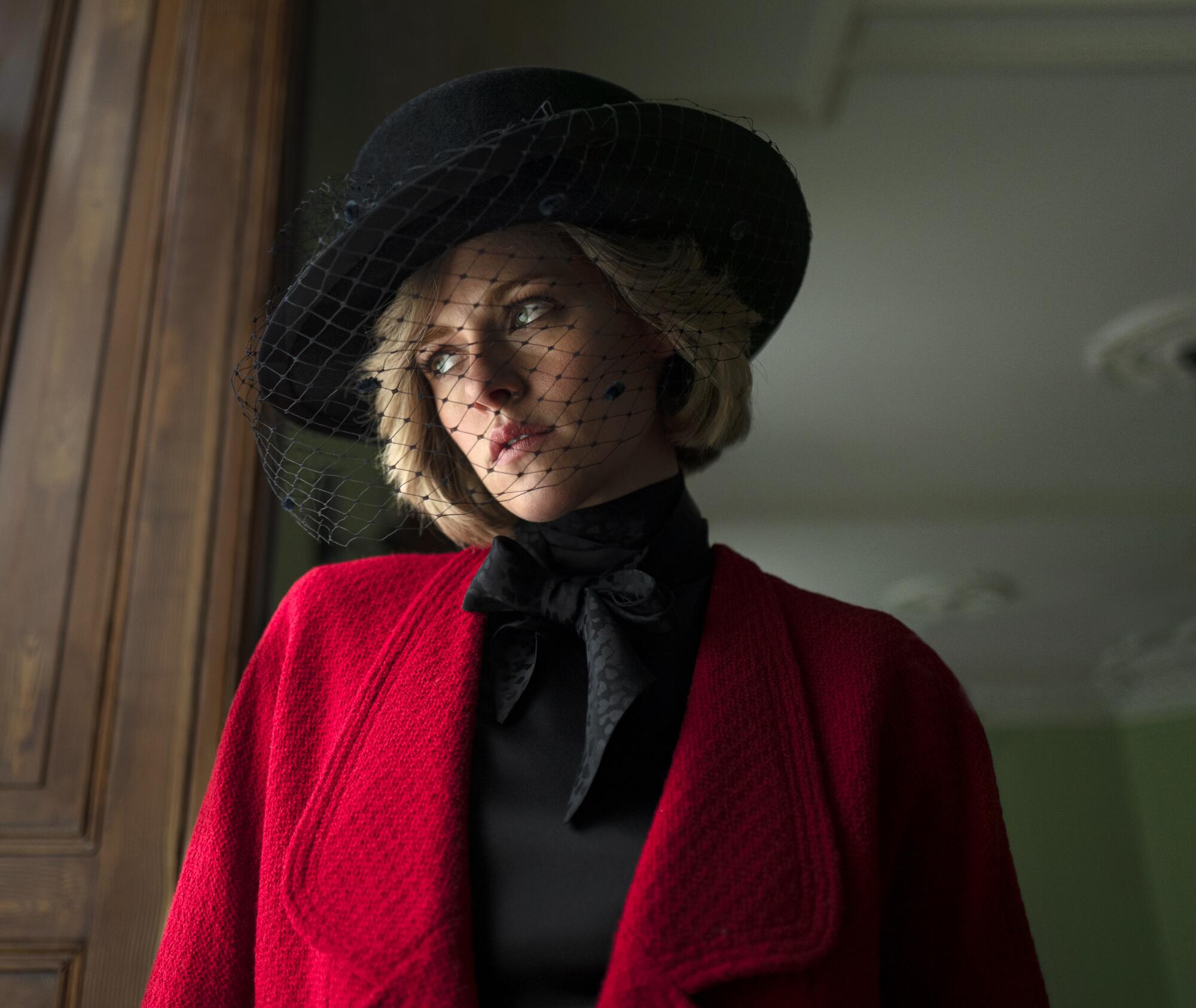
Set the scene: Diana (Stewart) is playing with her sons William (Jack Nielen) and Harry (Freddie Spry), and in the game they elicit truths by speaking as a general to a soldier.
What makes it key: “It’s a very moving scene but one that cracks the ceiling open for Diana and lets her understand she can be who she wants to be, thanks to these kids,” says director Pablo Larraín. “She understands she may never be a queen, but she will be the mother of those kids, and that’s enough for her. Kristen brings truth and fragility, and that’s hard to do in that character, and it lets the audience and Diana understand that her life with these boys can be enough.”
Javier Bardem, “Being the Ricardos”
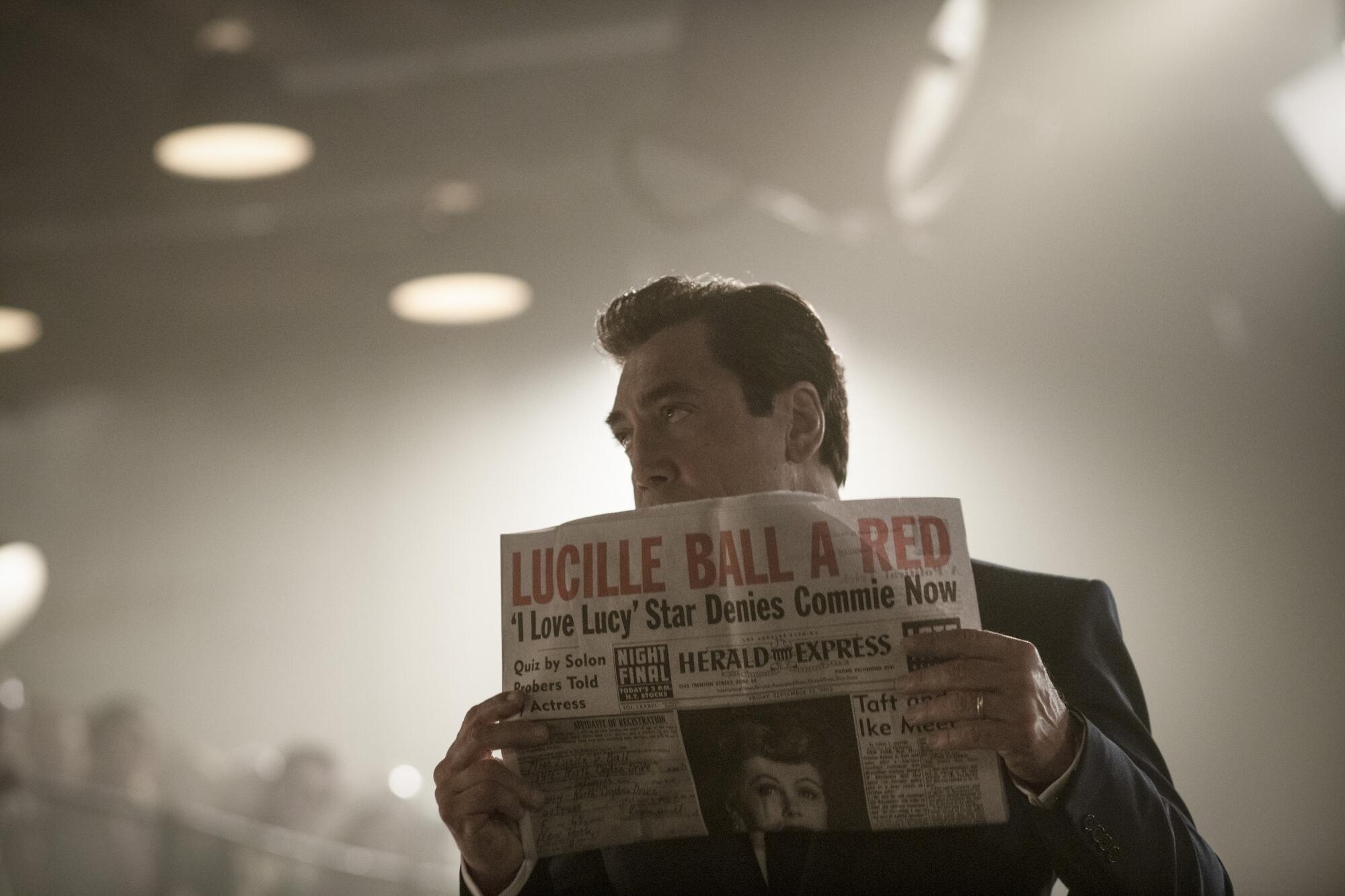
Set the scene: Lucy (Nicole Kidman) has been concerned about being called a Communist for filling out a card when she was younger, and Desi (Bardem) explodes with emotion, because he knows what it means to live under that oppression.
What makes it key: “He really rises against her to put her in her place, because he knows the true meaning of communism,” says producer Todd Black. “It becomes a big, emotional moment for him and so personal, because you understand the destruction of his family and history of his family through wartime — and he lets her know that. This is a shining moment for him and was very unrehearsed. Javier got emotional when he delivered it on the first take.”
Benedict Cumberbatch, “The Power of the Dog”

Set the scene: Phil (Cumberbatch), whose repressed homosexuality has led him to attack what he sees as weak spots in everyone around him, is revealed to have a secret space out in the country where he can bathe in the nude and where his private papers live. Peter (Kodi Smit-McPhee) stumbles upon the cache he’s hidden and discovers his secret.
What makes it key: “We see Phil vulnerable for the first and probably only time in the movie,” says producer Tanya Seghatchian. “This is the first time the audience can witness this aspect of his personality. And Benedict is brilliant in this scene — it takes an enormous amount of courage to be visible like that. His performance is full of grace notes; it’s poetic and free.”
Andrew Garfield, “Tick, Tick … Boom”
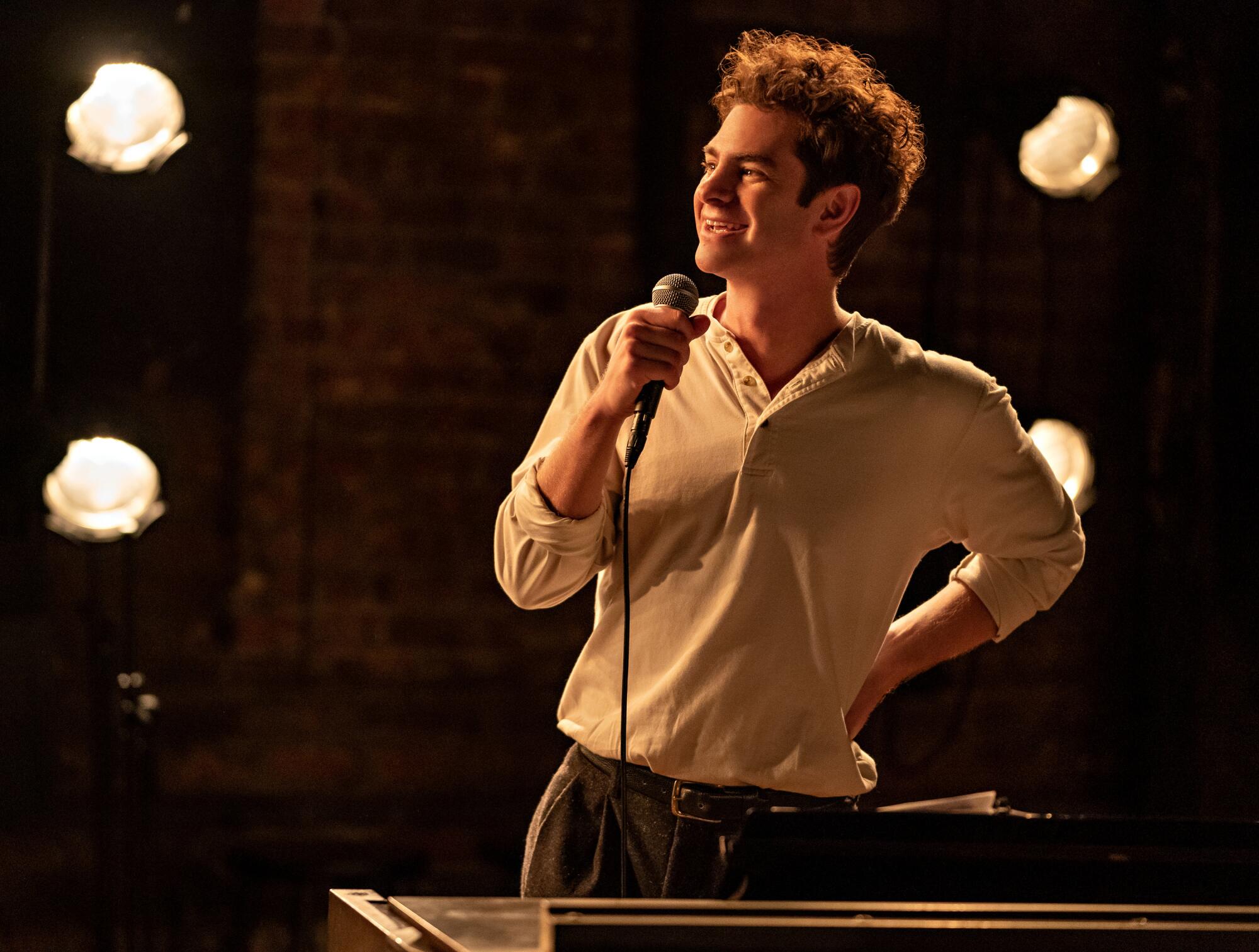
Set the scene: As Jonathan (Garfield) plays the piano and sings “Why” in Central Park’s Delacorte Theater, there’s a replay of his life — from when he fell in love with performing and music, when he is tested and emerges on the other side.
What makes it key: “It was an all-nighter at the Delacorte, but we had it on the second take — after that it became what other shades do we want to explore,” says director Lin-Manuel Miranda. “Andrew brought all of himself to it, and we kept finding variations, and that’s a lot to balance — because we’ve just learned about this devastating thing about his best friend. Plus, this musical he’s spent half his life writing is going nowhere. So by exploring every impulse that got him to this moment, he finds a way through. He reached for it and got it.”
Will Smith, “King Richard”
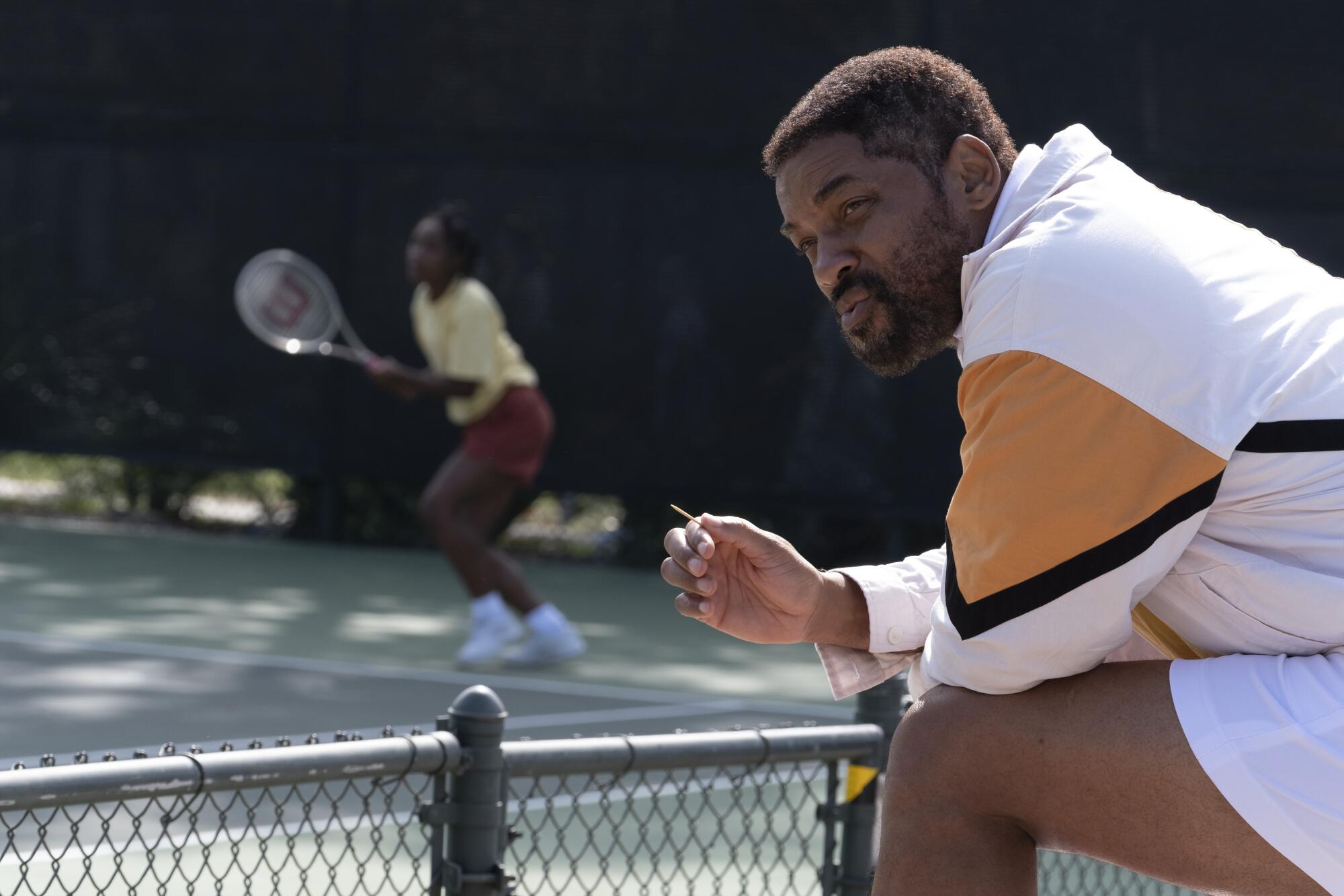
Set the scene: Richard (Smith) has made a decision: His daughter Venus will not compete at the professional level. But he’s made the decision without consulting Venus (Saniyya Sidney) or his wife, Brandy (Aunjanue Ellis) — and both women speak up loudly, causing Richard to pause, and consider.
What makes it key: “It’s the first time we reveal part of Richard that we didn’t know about,” says director Reinaldo Marcus Green. “It’s a key turning point for him emotionally. It’s the first time he has to listen, in a lot of ways. He has to ignore [Brandy] or swallow his pride and make a decision that’s best for the family. It’s a character-changing moment for both our lead actors.”
Denzel Washington, “The Tragedy of Macbeth”
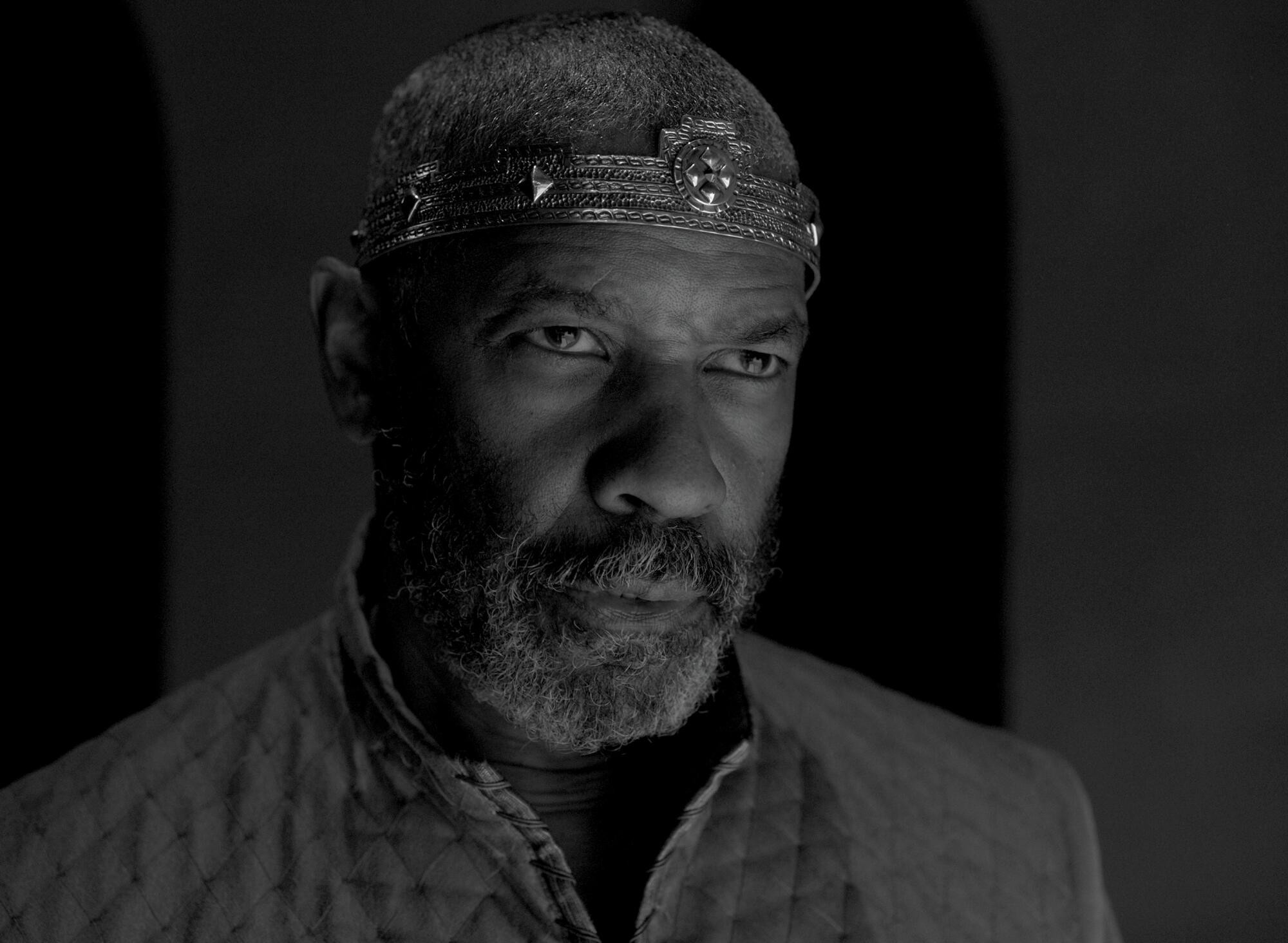
Set the scene: King Duncan (Brendan Gleeson) has arrived at Inverness Castle, and a lone Macbeth (Washington) debates the morality and particulars of the treacherous plan to murder the king.
What makes it key: Macbeth’s first soliloquy hits at the heart of the matter and gives a sense as to where his mindset is, says producer Robert Graf: “Denzel’s performance is a marvel of balance and precision, alternately exhibiting both resolve and struggle. Beginning with a seemingly casual commitment to the deed, Denzel finds a tone of almost delicate humility as he considers the king’s kindness and legacy as well as the lasting and unpredictable consequences that may await.”
More to Read
From the Oscars to the Emmys.
Get the Envelope newsletter for exclusive awards season coverage, behind-the-scenes stories from the Envelope podcast and columnist Glenn Whipp’s must-read analysis.
You may occasionally receive promotional content from the Los Angeles Times.










